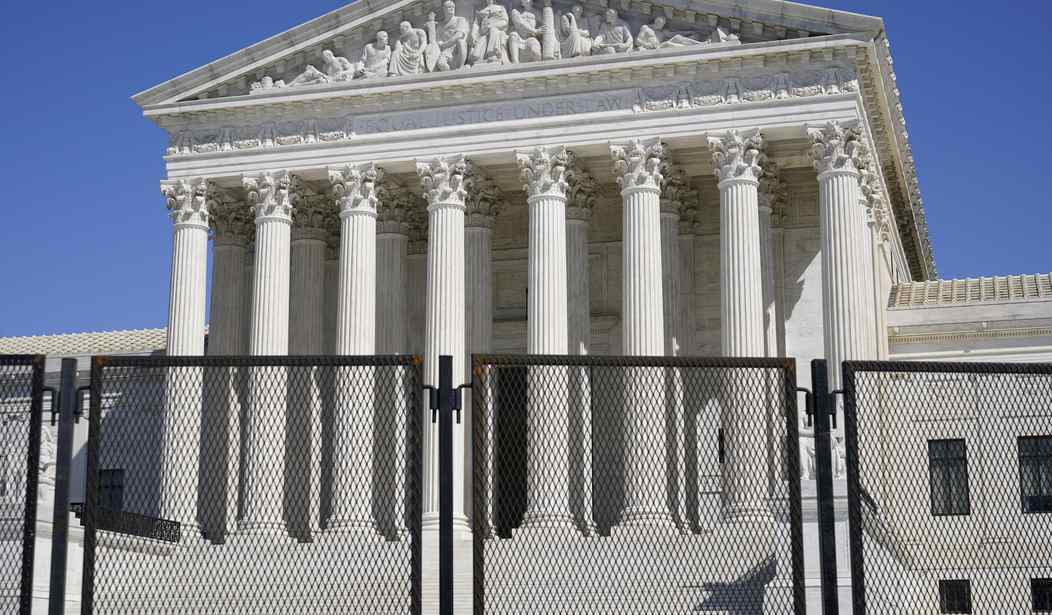In yesterday’s Fulton v. City of Philadelphia decision from the Supreme Court, conservatives saw a victory in the battle over religious liberty as the nation’s highest court decided 9-0 that the City of Philadelphia could not exclude a Catholic services organization from the providing adoption services through its system. That the decision was unanimous came as something of a shock to many observers, and raised questions about the Court under Chief Justice John Roberts.
The decision, while a victory for religious liberty, is still seen as fairly narrow, as explained by RedState’s own Shipwreckedcrew:
But there was not true unanimity on the Court over the issues raised by the case. The Chief wrote a narrow opinion faulting the language of Philadephia’s regulation prohibiting discrimination — which was the basis upon which Philadelphia disqualified CSS from participation (it discriminated against same-sex couples) — and that technical defect in the language of the City ordinance allowed the liberal justices to join his decision.
The conservatives concurred in the outcome — making it 9-0 — but wrote separate concurring opinions that would have reached more foundational constitutional questions involving the conflict between “civil rights” as they might apply to same-sex couples, and constitutional rights set forth in the First Amendment.
Conservative consensus is that the Court should have further considered the 1990 case Employment Division, Department of Human Resources of Oregon v. Smith, as it was central to this case and how the City of Philadelphia treated the Catholic services group. As Justice Alito pointed out in his concurring opinion, “In Smith, the Court abruptly pushed aside nearly 40 years of precedent and held that the First Amendment’s Free Exercise Clause tolerates any rule that categorically prohibits or commands specified conduct so long as it does not target religious practice.” In other words, Smith runs directly counter to the first promises of the First Amendment — that “Congress shall make no law respecting an establishment of religion, or prohibiting the free exercise thereof.”
Smith destroys the very foundation of the First Amendment by saying “Well, okay, you can abridge the free exercise of religion so long as it’s merely incidental. The aforementioned speculation surrounding the 9-0 decision is that Roberts, in order to rock the boat as little as possible, forged a deal with the liberal Justices and got them to sign on to a narrow decision that supports the Catholic group but does not strike down Smith. Most expected a 5-4 conservative majority, and that Justice Alito would be writing the decision. Because the liberal Justices signed on and allowed Roberts to be in the majority and write the opinion, he was able to keep the decision as narrow as it was.
I have no idea if that is really what happened, but there are plenty of people who are smarter than me saying that is a very likely scenario. But while I have no clue if that is certain, what I am sure of is that the Court, under Roberts, has ultimately punted on the issue of religious liberty. Ironically, it comes on the heels of a man named Jack Phillips losing a somewhat similar case in Colorado, paving the way for him to stand before the Roberts Court again.
Phillips is the man better known as the Colorado baker who refused to bake a cake for a same-sex couple’s wedding ceremony. In Masterpiece Cakeshop v. Colorado Civil Rights Commission, the Supreme Court ruled that the Colorado Civil Rights Commission had discriminated against Phillips.
Not because of his religious convictions (he is a man whose faith is observed through his work, and baking a cake for such a wedding would be against his religious beliefs — the reason he was attacked and fined by the commission in the first place) but because their rhetoric was extremely biased.
Almost immediately after that case was decided, a transgender activist asked him to bake a cake for a sex transition celebration and he again refused, prompting more legal action from the Colorado Civil Rights Commission. Earlier this week, he lost in a Colorado court and is expected to appeal.
It was, again, Roberts who led the Supreme Court in a narrow decision in Phillips’ favor, not addressing the underlying persecution of the baker — he was specifically targeted because of his beliefs — and left the door open for activists to try again. They took the opportunity to do just that, just as I fully expect activists to try and get the Catholic services group in Philadelphia in trouble for a “civil rights” violation. All because Roberts would rather punt on the issue than make too many waves and risk people arguing against the “legitimacy” of his Court.
But, if Phillips returns to argue before the Supreme Court again (and I fully expect he will as the Alliance Defending Freedom has rallied to his side once again), then Roberts will have to stare down the mess he’s created by not addressing the open persecution of his religious beliefs by activists and a government agency with power far broader than it should have. This is a legal crisis of Roberts’ own making, and he will be forced to reckon with it one way or another.
Only this time, there is a 5-4 majority without him.












Join the conversation as a VIP Member